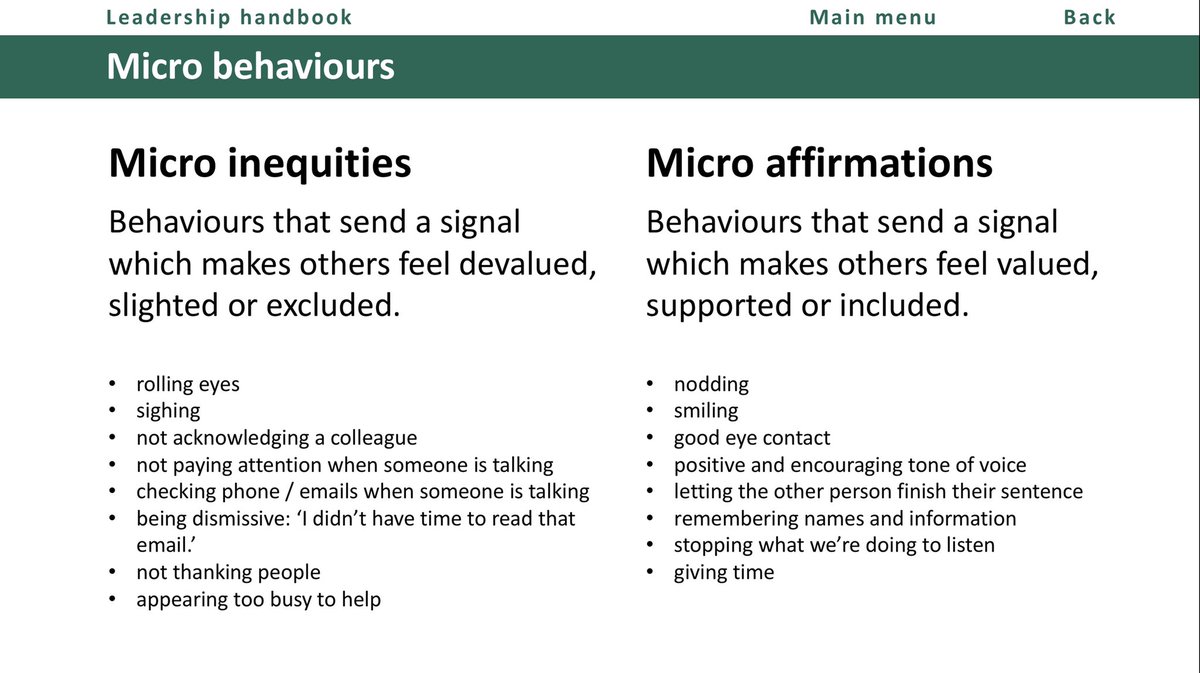
Fancy some half term reading?
Try #Culturebook!
Here are the abstracts for each chapter to whet your appetite along with related blog posts and pages from my leadership handbook…
🧵
1/12
Try #Culturebook!
Here are the abstracts for each chapter to whet your appetite along with related blog posts and pages from my leadership handbook…
🧵
1/12

1️⃣ What is culture and why is it important?
mrnickhart.wordpress.com/2022/07/27/bel…
mrnickhart.wordpress.com/2022/08/04/bel…
mrnickhart.wordpress.com/2022/05/13/lie…
2/12



mrnickhart.wordpress.com/2022/07/27/bel…
mrnickhart.wordpress.com/2022/08/04/bel…
mrnickhart.wordpress.com/2022/05/13/lie…
2/12




2️⃣ Extensive domain specific knowledge is required to create a strong culture and a positive climate
mrnickhart.wordpress.com/2022/09/03/res…
mrnickhart.wordpress.com/2022/03/03/the…
mrnickhart.wordpress.com/2021/12/02/lea…
mrnickhart.wordpress.com/2021/11/05/poo…
mrnickhart.wordpress.com/2021/05/10/wha…
3/12



mrnickhart.wordpress.com/2022/09/03/res…
mrnickhart.wordpress.com/2022/03/03/the…
mrnickhart.wordpress.com/2021/12/02/lea…
mrnickhart.wordpress.com/2021/11/05/poo…
mrnickhart.wordpress.com/2021/05/10/wha…
3/12




3️⃣ Setting your school’s strategic direction
mrnickhart.wordpress.com/2022/02/18/pur…
mrnickhart.wordpress.com/2022/01/28/tal…
mrnickhart.wordpress.com/2022/09/23/sef…
mrnickhart.wordpress.com/2022/05/02/nin…
4/12

mrnickhart.wordpress.com/2022/02/18/pur…
mrnickhart.wordpress.com/2022/01/28/tal…
mrnickhart.wordpress.com/2022/09/23/sef…
mrnickhart.wordpress.com/2022/05/02/nin…
4/12


7️⃣ High levels of trust are required to improve outcomes for children
mrnickhart.wordpress.com/2021/07/09/bui…
8/12



mrnickhart.wordpress.com/2021/07/09/bui…
8/12




🔟 Why measuring culture is futile and evaluating it is not much better
mrnickhart.wordpress.com/2022/03/10/the…
mrnickhart.wordpress.com/2022/01/11/for…
mrnickhart.wordpress.com/2021/12/08/kno…
11/12

mrnickhart.wordpress.com/2022/03/10/the…
mrnickhart.wordpress.com/2022/01/11/for…
mrnickhart.wordpress.com/2021/12/08/kno…
11/12


More about #CultureBook here:
mrnickhart.wordpress.com/culturebook/
You can order with @RoutledgeEd here:
routledge.com/Creating-a-Str…
12/12
mrnickhart.wordpress.com/culturebook/
You can order with @RoutledgeEd here:
routledge.com/Creating-a-Str…
12/12
• • •
Missing some Tweet in this thread? You can try to
force a refresh























